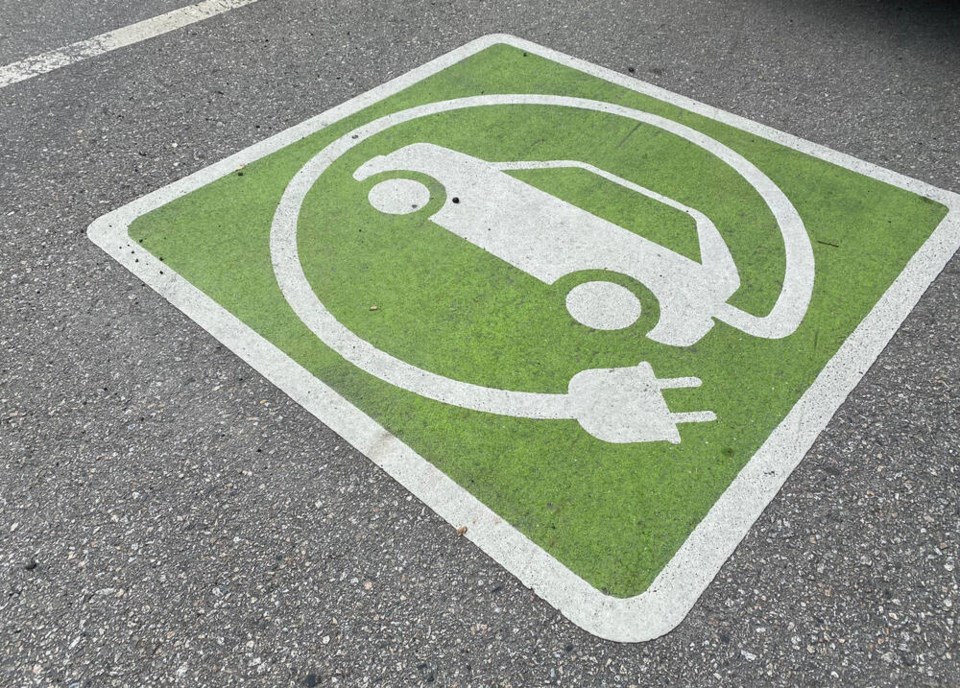The end of free charges has also meant a reduction in the number of electric vehicle (EV) owners using Delta city-owned charging stations at public facilities.
In a recent report to council, providing an update on Delta’s Electric Vehicle Strategy, staff noted since user fees came into effect in January 2022, usage of the charging stations “dropped significantly after the user fees were implemented, and usage at most stations has not yet recovered to pre-user fee levels.”
The fees came in effect at all city-owned EV charging stations in a cost recovery effort.
The fees are to also discourage heavy use by a small number of individuals, encourage turnover and allow more drivers to make use of the stations.
Similar to other municipalities, the fee structure sees Level 2 stations charge $2 per hour for the first two hours and $5 per hour after that.
While Delta’s network currently does not have Level 3 stations, those would have an $8 per hour fee for 25 kW and $16 per hour for 50 kW.
A previous report noted that from Jan. 1 through Nov. 15, 2021, there were 18,774 charging sessions for all charging stations combined. The stations at the North Delta Arts Centre were the busiest.
At an average use of six hours per day, it was expected that the capital costs for installing a Level 2 charging station could be recovered in approximately four-to-five years at a rate of $2 per hour and accounting for operating costs.
The latest report notes that staff anticipate that the city will begin receiving saleable carbon credits this year as a result of a change in the BC Low Carbon Fuel Standard.
Municipalities that own and operate EV charging stations are now required to report annual electricity amounts to the province, and in return will receive carbon credits that can be transferred to other fuel suppliers in the province at fair market value.
At the current market value for carbon credits, staff estimate that the sale of the city’s carbon credits could offset the cost of operating the EV charging stations, the report suggests.




